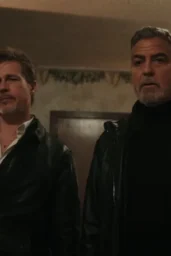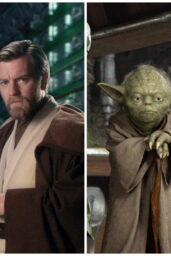Zoë Kravitz is no stranger to making waves, both on and off the screen. As she gears up for the theatrical release of her highly anticipated directorial debut, Blink Twice (Pussy Island), on August 25, 2024, Kravitz finds herself at the center of a heated conversation. The actress and filmmaker, known for her sharp wit and unapologetic attitude, recently sparked controversy by defending her admiration for the films of Roman Polanski.
In an interview with Esquire, Kravitz made it clear that she values Polanski's cinematic contributions, despite the deeply problematic aspects of his personal life. “I don't care if you hate Roman Polanski,” she stated bluntly, emphasizing that it's the films, not the filmmaker's past, that matter to her. Among her favorites, she listed Rosemary's Baby (1968) and The Tenant (1976), two iconic thrillers that have left an indelible mark on cinema history.
Kravitz's stance is undoubtedly controversial. In a world where cancel culture and accountability are hot topics, her ability to separate the art from the artist raises important questions. Should we, as viewers, completely disregard the works of problematic figures, or can we appreciate their art independently of their actions? Kravitz believes in the latter, arguing, “It's okay that somebody bad was involved in something good.”
Her perspective echoes that of Venice Film Festival's director, Alberto Barbera, who has also defended Polanski's works, stating that one must distinguish between the man and the artist. Barbera's take – that Polanski's films will be remembered long after his misdeeds are forgotten – highlights the complex relationship between an artist's personal life and their creative output.
As Blink Twice – starring Channing Tatum, Naomi Ackie, and Simon Rex – hits theaters, Kravitz's comments add a provocative layer to the conversation surrounding her work. The film, a thriller blending elements of mystery and social commentary, is already generating buzz, and Kravitz's fearless voice only amplifies the anticipation.
Ultimately, Kravitz's admiration for Polanski's films is a reminder of the complicated intersections between art, morality, and culture. Whether you agree with her or not, she's made one thing clear: she's here to challenge the status quo, both in her films and in the way we think about them.












